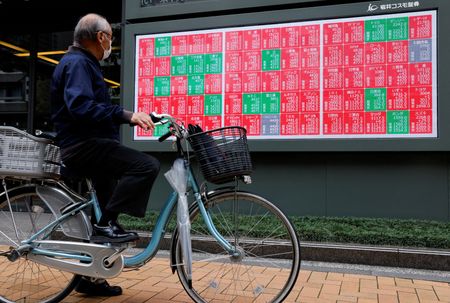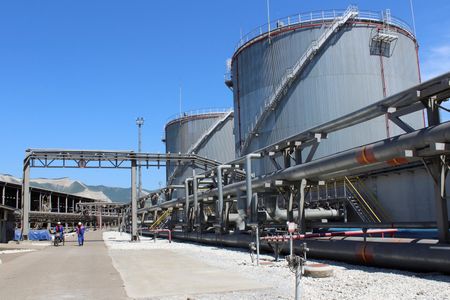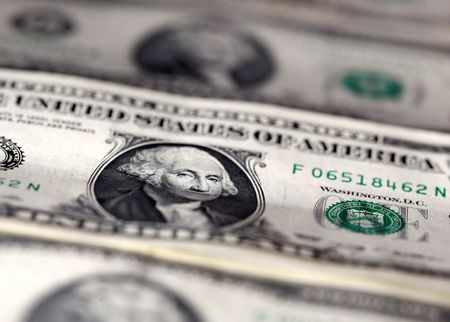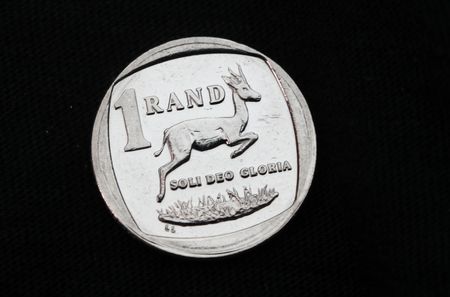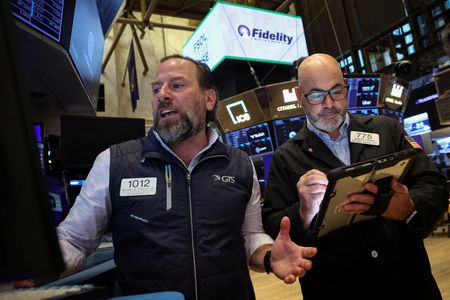By Scott Murdoch
SYDNEY (Reuters) -Asian share markets shifted higher on Tuesday as hopes grew the Federal Reserve will deliver a December interest rate cut, while investors piled into global technology stocks, shrugging off concerns the sector was becoming overheated.
MSCI’s broadest index of Asia-Pacific shares outside Japan was up 0.75% led mainly by tech stocks, recouping some of the losses from last week when it fell 4%. The index is on course to record its first monthly decline since March.
European futures though were 0.2% lower, indicating a soft open.
The yield on benchmark 10-year Treasury notes was flat at 4.038%. The two-year yield, which rises with traders’ expectations of higher Fed fund rates, was steady at 3.495% in Asian hours after dropping 2.5 basis points in the previous session. Japan’s Nikkei was up just 0.1% on Tuesday after a strong start to the session in its return from a holiday on Monday. The index slid 3.5% last week as a bout of risk-off sentiment gripped markets. Hong Kong’s Hang Seng Index was nearly 0.6% higher on Tuesday and China’s CSI300 Index was up 1.1%.
The prospect of a U.S. rate cut is rising after Fed Governor Christopher Waller said available data indicated that the U.S. job market remains weak enough to warrant another quarter-point cut to interest rates.
Markets are pricing in an 85.1% chance of a cut of 25 basis points at the December meeting, according to CME’s FedWatch Tool, up from 42.4% a week ago. The U.S central bank will meet on December 9 and 10.
The sudden shift in rate cut wagers has had limited impact on the dollar. The euro last bought $1.15125 after eking out small gains overnight. The dollar index was last at 100.25, holding onto its gains from last week when the index rose nearly 1%.
“We think the Fed will cut in December and then pause five to six months before they look at three more cuts next year, probably in the second half,” said Jack Siu, Lombard Odier’s Head of Discretionary Portfolio Management, Asia.
He said it was likely the ECB and the Swiss National Bank have ended cutting, and “the BOJ is going to be more dovish, even though its next move is going to be a hike.”
“From an interest rate differential perspective, we are going to see the dollar depreciate. This rebound in our view is not sustainable,” Siu said.
An ongoing row between Tokyo and Beijing over a comment by Japan’s Prime Minister Sanae Takaichi earlier in November that a Chinese attack on Taiwan could trigger a Japanese military response remains in focus.
Takaichi and U.S. President Donald Trump spoke on Tuesday, following his call on Monday with Chinese President Xi Jinping. She said Trump explained U.S.-China relations to her.
Trump said on Monday he would travel to Beijing in April at the invitation of the Chinese government. The proposed meeting was interpreted as a further sign diplomatic and political relations between the two countries are improving following their trade war truce.
“This helps the overall geopolitical tensions that continue to add to market volatility,” said Marcella Chow, JPMorgan Asset Management’s market strategist.
Nasdaq futures and S&P 500 futures also eased slightly in Asian hours.
U.S. stock and bond markets will be closed on Thursday for the Thanksgiving holiday and will trade for half a day on Friday.
In commodities, Brent crude futures were down 0.52% at $63.04 a barrel, while U.S. crude futures were off 0.48% at $58.56 per barrel.
Spot gold was steady at $4,141 an ounce.
(Reporting by Scott Murdoch; Editing by Sonali Paul)

